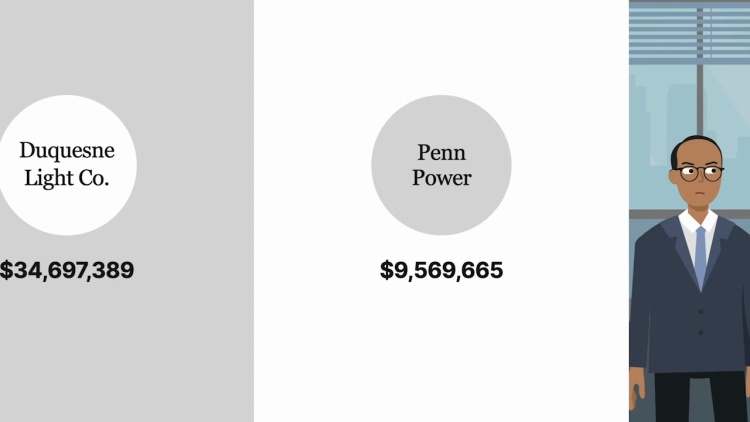Duquesne Light Company v. Barasch
United States Supreme Court
488 U.S. 299 (1989)
- Written by Galina Abdel Aziz , JD
Facts
In 1967, Duquesne Light Company (Duquesne Light) and Pennsylvania Power Company (Penn. Power) (plaintiffs) partnered in a venture called the Central Area Power Coordination Group (CAPCG). CAPCG’s goal was to construct seven large nuclear power plants. In 1980, Duquesne Light and Penn. Power canceled the plans for four nuclear power plants. Duquesne Light accrued $34,697,389 and Penn. Light accrued $9,569,665 in preliminary construction costs for the four canceled plants. In 1982, Duquesne Light asked the Pennsylvania Public Utility Commission (PUC) for a rate increase, amortizing its expenditures on the canceled plants. The PUC issued an order granting Duquesne Light a revenue increase of $105.8 million to a total yearly revenue of more than $800 million. The rate increase included three and a half million dollars in revenue, representing the first payment on Duquesne Light’s CAPCG losses. The Pennsylvania Office of the Consumer Advocate (Consumer Advocate) moved the PUC to reconsider based on a recently passed law that required electricity rates to be fixed without consideration for a utility’s expenditures on facilities that were not used for public service. The Consumer Advocate appealed to the Pennsylvania Supreme Court, which reversed. The state supreme court held that the Pennsylvania law prohibited amortizing the canceled plants and rejected the constitutional challenge to the statute, finding that the Fourteenth Amendment safeguarded just compensation based on a reasonable return on the fair value of a property if it is being used for public service. On appeal, Duquesne Light and Penn. Power argued that the exclusion of their prudently incurred costs violated the Takings Clause of the Fifth Amendment.
Rule of Law
Issue
Holding and Reasoning (Rehnquist, C.J.)
What to do next…
Here's why 907,000 law students have relied on our case briefs:
- Written by law professors and practitioners, not other law students. 47,100 briefs, keyed to 996 casebooks. Top-notch customer support.
- The right amount of information, includes the facts, issues, rule of law, holding and reasoning, and any concurrences and dissents.
- Access in your classes, works on your mobile and tablet. Massive library of related video lessons and high quality multiple-choice questions.
- Easy to use, uniform format for every case brief. Written in plain English, not in legalese. Our briefs summarize and simplify; they don’t just repeat the court’s language.





